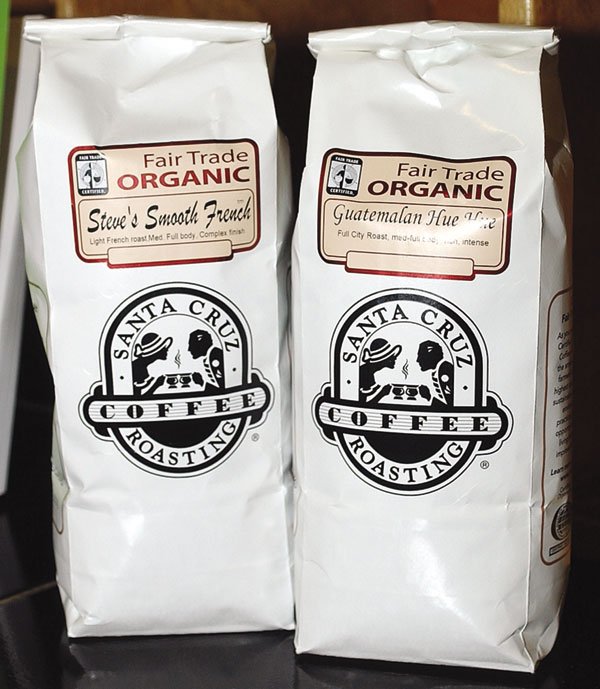Most people think
”
fair-trade
”
is a brand, but for hundreds of farmers and artisans around the
world, the concept is much more than a commodity
– it’s a key to a better life.
Most people think “fair-trade” is a brand, but for hundreds of farmers and artisans around the world, the concept is much more than a commodity – it’s a key to a better life.
The term “fair-trade” has been circulating a lot recently, especially in reference to coffee, and it’s not a brand but an ideal put into action. It starts with the principle that consumers and producers should both benefit enough from their interaction to sustain that relationship. In other words, the consumer should be able to afford to continue purchasing goods, and the producer should be able to afford to live while growing or creating those goods, according to fair trade certifier TransFair USA.
“Say a small coffee grower forms a co-operative and that co-op contracts with a fair-trade company,” said Mike Monroe, owner of Integrity Express, a Gilroy-based retail source for fair-trade food goods. “They’re guaranteed a price, typically a little over the world market price. If they’re guaranteed that price, the family gets to stay together instead of emigrating for work. The kids get to go to school because they don’t have to work in the fields anymore.”
One example of where the fair trade idea has taken off is the coffee industry. Many Latin American coffee growers form cartels that keep people working for little money, said Monroe. But proponents of fair trade believe itcould help to undermine such monopoly-based power structures in many developing nations, and reduce reliance on child trafficking and underage labor as sources of income in these regions, he said.
“It’s about justice, social justice,” said Monroe, who began his business after reading an article on fair-trade goods and contemplating its connection to church sermons he’d heard on Biblical justice.
But for Brad Jones and Cinda Meister, owners of Caffee Kaffee Vin coffee house in Morgan Hill, the concept tied in to personal experience.
As small business owners, said Jones, the couple felt empathy with the struggle of workers in other countries to survive.
“I was in the restaurant business for a long time, and at one time, there was a prevalent attitude that the people who served or cooked were servants, commodities,” said Jones. “But everyone deserves, when someone prospers, to gain something from that. It gives them enough to be maybe a little bit more than a slave to what they do.”
So Jones and Meister serve organic, fair-trade coffees in their shop and sell fair-trade art, including handbags, jewelry and gift items. They also educate customers about the benefits of free-trade goods.
“It’s one customer at a time,” said Meister. “But when it’s a gift like that, it’s something you’re going to buy anyway. Why not buy something that’s going to benefit someone else’s life instead of something that was made in a dirty, stinky factory?”
And while fair-trade workers may be paid more than the average field hand, fair-trade companies eliminate much of the cost imbalance associated with the practice by dealing directly with producers rather than brokers or middle-men, said Monroe. Integrity Express’ fair-trade coffee retails for $8 per pound, about the same price as high-end brands like Starbuck’s, Peet’s and Seattle’s Best.
“The issues that this touches are so large,” said Monroe. “You’re talking about poverty and big-time disease, but really, even by doing something as simple as buying a chocolate bar or a bag of tea, it’s helping. This is something we all can do. We can buy non-sweatshop clothing or shoes. We can buy crafts that are fair trade. We can vote with our wallets as to how we hope people are treated around the world.”















